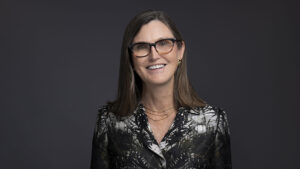Vecht (pictured) would not say which companies or countries the fund is investing in, but listed Qatar, the United Arab Emirates and Greece as countries where he sees exciting opportunities.
“Those are genuinely interesting markets for us. On a relative valuation basis, and given the top-down outlook for these countries and how they’ve been ignored by others in the market, definitely we see opportunities in those markets.”
Elsewhere, Vecht said they saw interesting individual stocks in countries like Indonesia.
“There are orders out there or some orders may already be completed depending on the liquidity of the shares. Where we see opportunities we’ll take advantage of them.”
At the end of March, shareholders voted to adopt a recommendation from the investment trust board to expand the investible universe of the investment trust from the MSCI Frontier Markets index to the smallest constituents of the MSCI Emerging Markets index.
The changes came into effect on 1 April.
The investment trust will now be benchmarked about a bespoke index called the MSCI Emerging Markets ex Selected Countries + Frontier Markets + Saudi Arabia Index. Saudi Arabia is in the process of being upgraded to an emerging market by FTSE Russell and MSCI will be making a decision on its classification in June.
The investment trust’s April factsheet will reveal the first additions from the new investment universe, Vecht told Portfolio Adviser in an interview about the changes to the portfolio. However, he added the evolution of the portfolio could take a “number of years”.
“The vast majority of the portfolio will be the same in three months’ time,” Vecht said.
‘Forgotten forty’
Ahead of changes to the portfolio, clients questioned Vecht and Fletcher about emerging markets overlap created by the expansion of the investment trust’s universe, he said.
But he said the new additions to the portfolio represent only 15% of the MSCI Emerging Markets index. Indonesia, Turkey and Malaysia are the largest constituents of the index in which the investment trust is now able to invest.
Currently, the investment trust’s largest country holdings are Argentina, Kuwait and Vietnam, which represent 15.2%, 9.8% and 7.8%.
“There is a degree of overlap with emerging market funds, but this fund will diverge meaningfully from emerging market performance,” Vecht said.
“When people are worried about a US trade war with China or worried about US bond yields, the big eight emerging markets all move up and down together. That creates correlation and volatility. But the ‘forgotten 40’ have a far lower degree of correlation and a far lower degree of volatility.”
Vecht said the fund wanted to move away from the “upgrade-downgrade cycle” of the index provider, noting Argentina, Qatar and the UAE as recent constituents that have moved between the MSCI Emerging Markets and Frontier Markets indices.
“A very large proportion of meetings with clients focussed on ‘what are you going to do if country X gets promoted or country Y gets demoted’. We didn’t think that was a very helpful way of spending client time.”
The investment trust was already able to invest in Colombia, Egypt, Peru or the Philippines because “the board understood these markets had those aspects we’ve always been interested in”, said Vecht, referring to growth, inefficiency and low correlations. However, he admitted the inclusion of four additional countries in their investment universe was confusing for investors.
Overhaul process
“We’re not just going to sell Argentina for the sake of it and we’re not just going to buy Indonesia for the sake of it,” Vecht said of the process of adopting the new investment universe.
He said they sell stocks when they hit target prices and buy when they see “meaningful upside on a risk-adjusted basis”.
Vecht said the last year had been positive for the investment trust and there were many stocks hitting their target prices, increasing the likelihood of those stocks being sold.
He listed Argentina as a country they had been positive on for a number of years, but said its markets had rallied significantly meaning many valuations were getting stretched. In 2017, the Argentina Mercal Index rose 36.5% and in 2016 it rallied 41.4%.
Argentinian companies Grupo Financerio Galicia and energy company YPF are the portfolio’s largest holdings, each accounting for 4.2%.
“The evolution of the portfolio is one purely dependent on company fundamentals and the pricing of those companies.”







